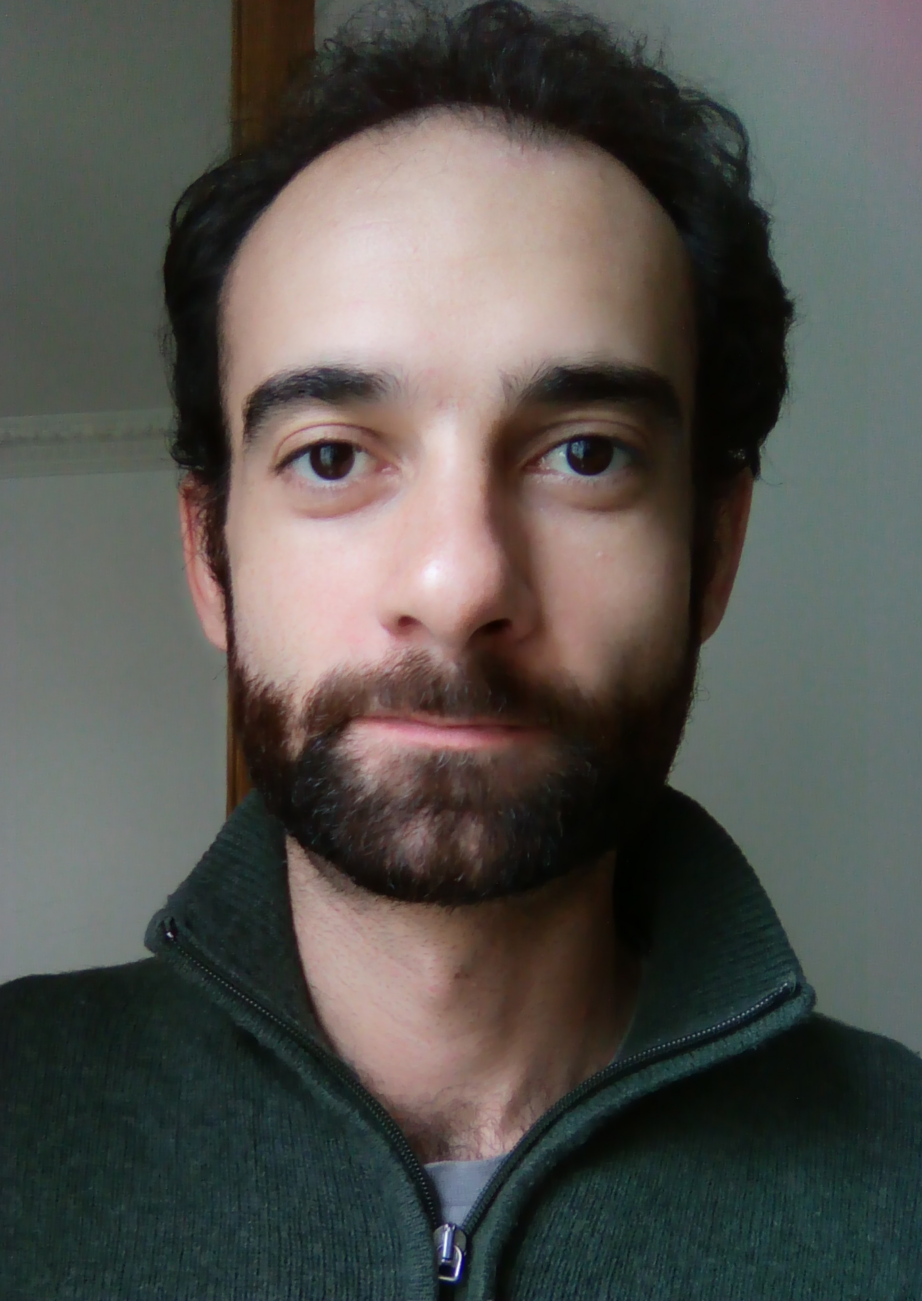Zoomposium mit Dimitri Coelho Mollo (Assistant Professor in Philosophy of Artificial Intelligence):
„Wie intelligent ist die Künstliche Intelligenz?”
In dieser neuen Folge unserer „Zoomposium-Interview-Reihe“ zur Themenreihe „Künstliche Intelligenz“ hatte mein Kollege Axel Stöcker vom „Blog der großen Fragen“ und ich einen Gast-Interviewer Yervant Kulbashian (Engineering Manager bei einer kanadischen KI-Plattform) eingeladen. Yervant hatte auf meiner Seite schon eine Trilogie von Gastbeiträgen „Der grüne Schwan“ zum Thema „Entwicklung von sprachgestützter Logik auf Maschinen“. Aus diesem Grunde und da er „native speaker“ ist, hatten wir ihn eingeladen an unsem Interview mit Dimitri teilzunehmen.
Professor Dimitri Coelho Mollo ist ein Wissenschaftsphilosoph mit Spezialisierung auf Künstliche Intelligenz und Kognitionswissenschaft. Er ist der Gebietskoordinator des Centre for Transdisciplinary AI (TAIGA) an der Umeå University (Schweden) und externer Principal Investigator am Science of Intelligence Cluster (Berlin).
Seine Forschung konzentriert sich auf grundlegende und erkenntnistheoretische Fragen innerhalb der künstlichen Intelligenz und der Kognitionswissenschaft und sucht nach Wegen, unser Verständnis von Geist, Kognition und Intelligenz in biologischen und künstlichen Systemen zu verbessern.
Seine Arbeit überschneidet sich häufig mit Fragen der Ethik der künstlichen Intelligenz, der Philosophie der Informatik und der Philosophie der Biologie.
Es ist uns daher eine große Freude und Ehre ihn einmal zu der Frage „Wie intelligent ist die Künstliche Intelligenz?“ interviewen zu dürfen. Hier steht natürlich eine weitere große Frage im Raum, ob es möglich ist, dass Maschinen eines Tages auch „Künstliches Bewusstsein“ („AC/DC = artificial consciousness/digital consciousness“) entwickeln könnten. Zu dieser Thematik hatte ich ja auch bereits einmal einen Essay „Das System braucht neue Strukturen – nicht nur für/gegen die Künstliche Intelligenz (KI)“ verfasst.
Das Interview haben wir selbstverständlich in englicher Sprache geführt und ist auf unserem Youtube-Kanal „Zoomposium“ zu sehen. Jetzt möchte ich aber lieber Dimitri das Wort erteilen, daher habe ich hier einmal die Fragen zu unserem gemeinsamen Interview zur weiteren Information abgedruckt.
Interview questions: „Wie intelligent ist die Künstliche Intelligenz?”
1. Dear Dimitri, you are Assistant Professor for Philosophy of Artificial Intelligence and in this context you deal a lot with the functioning and the effects of AI applications on individuals and society.
- ChatGPT is on everyone’s lips at the moment. Could you have imagined doing this interview with a machine instead of with us?
- What possible changes and effects do you see coming for individuals and society in this context?
2. Another focus of your research is on „Transformers„, which have contributed significantly to the success of ChatGPT.
- Could you briefly explain for our audience the differences of „Feed-forward networks„, „RNNs„, „LSTMs“ and „Transformers“ to better understand the successful concept behind them?
- ChatGPT and LLMs can sometimes draw logical conclusions. Does this mean that the connectionists have finally triumphed over the symbolists? Was „attention“ all we needed or are these still just „blockheads„?
3. „Embodied AI“ is another important research area of your studies.
- Could you briefly explain the underlying concept to our viewers?
- How integrated is logic in embodied interactions? In other words, can agents „do“ logic or do they just „think“ logic?
- To what extent is it important for an „intelligent agency“ to have some kind of „sensing mechanism„? Does this already have something to do with enactivism „4 e-cognition“ or in which direction is this research going?
- Does computationalism or functionalism as an analogy to human thinking in cognitive neuroscience or philosophy of mind go in the wrong direction in the form of a misunderstood perspectivism?
4. AI research currently tends to assume language-guided concepts that are strongly logic-oriented. Human logic, however, is not just language, but is also extremely tied to a social context.
- What would logic look like for an agent that is not embedded in a social context? Does this question make any sense at all?
- Does the (social) environmental aspect in the form of „embededdness“ play a role in the development of more powerful Artificial General Intelligence (AGI) in the future, or what does the concept of „intelligence“ (representation, function,…) even entail for you?
We specifically thank you, Professor Mollo, for taking the time for our interview to answer our possible questions.
The interview is available on our Youtube channel „Zoomposium“ at the link:
https://youtu.be/9xrsxXrXjQw
© Dirk Boucsein (philosophies.de), Axel Stöcker (die-grossen-fragen.com), Yervant Kulbashian (ykulbashian.medium.com)




 https://orcid.org/0009-0008-6932-2717
https://orcid.org/0009-0008-6932-2717
Dear S. E.,
thank you for your remarkable comment, on which I would like to write a few sentences.
You write: „The AI are way ahead of humans. How can a machine know empathy and love as humans do?“ This I also see quite the same as you.
The AI is way ahead of us in terms of intelligence regarding logical problem solving strategies (see Chess or Go). Regarding the aspect of modulation ability or neuroplasticity of „unsupervised“ or „reinforcement learning“, the machines are currently even further away from the performance of humans, because they are currently still missing an important element, the „consciousness“.
In our next Zoomposium interview with Dr. Patrick Krauß, we explicitly address this issue, as he wants to use Damasio’s theory of emotions in his project to simulate appropriate emotions and feelings on the machine. The key to artificial consciousness #AC/#DC („artificial consciousness/digital consciousness“) seems to lie in the feedback loops that take place via a structural coupling with the body „embodiment“ and the environment „embededdness“ as „nestedness“.
The simulation of „mirror neurons“ in the brain is not the biggest problem. It is more about the „emotional evaluation of the data“, because this „mirroring“ needs exactly these feedback mechanisms. But there the research is still at the beginning.
You write, „If humans think of AI as a really handy scientific calculator to solve real world problems that will save all the confusion about ‚can an AI be the same as a human?'“ I agree.
If something like AC/DC could be produced, it will definitely not be comparable to human consciousness. This is also the biggest problem honsichtlich of risk impact assessment, as I have already tried to describe in an older essay „The system needs new structures – not only for/against Artificial Intelligence (AI)“ (https://philosophies.de/index.php/2021/08/14/das-system-braucht-neue-strukturen/).
Therefore, your reference to the „concept of „duty of care“ from human civil law“ will also become more and more important, so that we do not make any mistakes here. There is only one attempt for this, if it fails, we have no chance for a correction as 2nd attempt. Asimov’s robot laws of 1942 are already a beginning. But they would have to be adapted urgently from my point of view.
Thank you very much for your interest and
kind regards
Philo Sophies